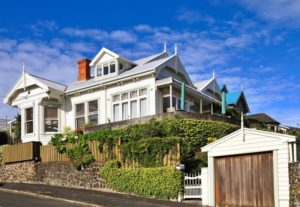There are a range of different property options available but choosing the one that’s right for you can be difficult. With so many different dwelling types available and the options to buy an existing home or building a new one, it can be difficult to know where to invest such a large amount of money.
Buying a home vs building a new home
While buying an established home means you know exactly what you’re getting, it can also mean you’ll have to spend on renovations and repairs. Whereas building a new home lets you tailor the home to your needs and particular tastes, but it might be more time consuming and it’s more difficult to visualise. By choosing to build a new home, you can save on stamp duty and you may qualify for the First Home Owner Grant depending on the state or territory you live in. Where you want to buy a property will likely dictate whether it’s more affordable or possible to build a new home or buy an existing home.

Buying ‘off the plan’
Buying ‘off the plan’ means you commit to buying a property before construction of that property starts or where it is only partially completed. The time it takes to complete construction may provide extra time for you to build up your savings after paying the initial deposit. However, one of the key risks of buying ‘off the plan’ is that the property market may change while the property is being built. If the property market changes in this time and the value of your home falls, it could impact how much you can borrow.

House and land packages
House and land packages are becoming more popular among first home buyers in capital cities as they’re often available in new suburban developments where the land can be much more affordable. An advantage of the packages is that the new house is built from modern materials and with new appliances making it a more energy-efficient home. Some packages, however, won’t include extras such as fencing or gardens so you’ll need to factor in the costs of what’s not included.
Fixer-uppers
Buying a home that needs to be renovated or repaired can be a much more affordable way to buy your first home. Purchasing an older home can give you the opportunity to secure a larger block of land, but renovations don’t come cheap. Depending on what repairs and renovations need to be made to the house, you may end up spending more than you would have if you’d purchased a newer property. A building inspection report will help uncover any major damage that needs to be repaired to the home.
Apartments and units
With high-density living becoming more popular, especially in our capital cities, there are more modern apartments or units to choose from. It may be more affordable to purchase an apartment compared to a house, but there are other costs associated with the dwelling. You will need to budget for quarterly strata levies that cover the costs of maintenance to common areas of the building such as the swimming pool or lifts. Newer apartments with extra common features will likely have higher levies. On the plus side, apartments and units require far less maintenance than a house which means you can spend less time gardening and cleaning gutters and more time enjoying your home

Townhouses and villas
Much like apartments and units, a townhouse or villa can be more affordable and have lower maintenance requirements than a house. They are often held through strata title so there will be levies to cover building maintenance much like an apartment. Unlike with an apartment though, townhouses and villas often include an outdoor terrace or courtyard where you can have your own private backyard space.
Dual occupancies and duplexes
Dual occupancy buildings are two homes that are built on a single block. Each home has its own title and provides enough room for a small garden or a backyard space. A duplex is similar to a dual occupancy but the two dwellings are often linked by a shared wall. Duplex homes share similar concerns with a townhouse which include noise and privacy. Both dual occupancy and duplexes are usually more affordable than detached houses as they’re on smaller blocks.
Before choosing the type of property that is right for you, it’s important to make a budget and a list of necessities you need in your home. Doing your research on financial costs, locations and the type of suburb you’d like to live in will make it easier to narrow your search.
Content originally appeared on The Real Estate Voice

If you have a question on the local Real Estate market, or should you spend money on a renovation of your home before you sell, or how to contact a Mortgage Broker, or any information about a local area, just call Matt Wineera on 0274 951 536 who is always on hand to answer your query. His advice is given freely and without obligation.
Work with Matt Wineera who lists and sells in the Tauranga, Mount Maunganui and Papamoa areas.
Check out what clients have to say about Matt
Matt continually achieves great results for Home Owners through his negotiation skills and vast real estate experience, knowledge and expertise.
Matt is very passionate about real estate and loves being at the coal face.
You can also check out, follow & like Matt’s Instagram posts and Facebook page
Give Matt a call now 0274 951 536
Or click this Facebook link to schedule a no obligation FREE Current Market Report for Your Home.


